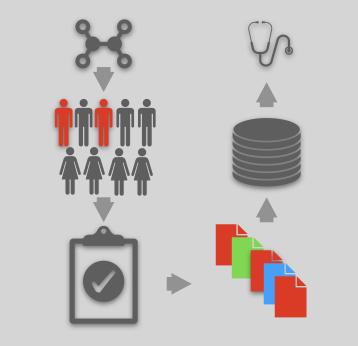Importance of Compiling Case Reports of "Precision" Adverse Drug Reactions & Their Role in Precision Medicine

Different individuals respond differently to drugs
It is nearly impossible to design a drug molecule that only has targetted effect in all living individuals. Even commonly used over-the-counter drugs, deemed and recognized by authorities as safe, can cause undesirable effects in some "hypersensitive" individuals. Such hypersensitive individuals respond differently to medications due to unique genetic makeup, preexisting conditions, or simultaneous intake of other drugs. For example, commonly used pain killers like aspirin and diclofenac can cause severe adverse responses in some individuals. How does a physician know that a given individual is more prone to cause unintended effects or develop an adverse reaction during treatment? The answer lies in the practice of precision medicine.
Role of precision medicine
Precision medicine has pushed away the "one size fits all" model of medicine. It aims to tailor treatment or therapy for a specific disease in a given individual, to minimize the adverse drug reactions and maximize the response of drugs. It involves prescribing medicine considering inter-individual heterogeneity in genetics, epigenetics, or metagenomics. Advances in genomic sequencing technology have made the ordering and collecting genetic profiles of an individual a trivial task. In the peer-reviewed literature, associations of the genomic finding with undesirable effects of medications are reported as case reports, case series, meta-analyses, etc. Based on their background knowledge or using standards guidelines published by the authoritative agency, physicians combine and weigh such evidence for tailoring care of given patients.
Sources of updated knowledge for rare adverse drug reactions.
However, with nearly 8000 FDA-approved drugs in the USA, tracking the rare side effects, adverse reactions, pharmacogenomic associations, drug interactions is almost impossible for a physician. Manually searching articles for evidence of associations in PubMed, BMJ Case Reports, Clinical Case Reports - Wiley Online Library, Oxford Medical Case Reports, and other case report journals is practically impossible. As a result, physicians rely on secondary sources of evidence or summary reports to generate insights into actionable knowledge. However, such summary reports cover the frequent scenarios, and rare outlier cases are challenging to access, limiting the practice and scope of precision medicine to tailor patient care. Additionally, most secondary sources of actionable information provide a human-readable view. Updated, quantitative (i.e., age/sex/ethnicity stratified), and cross-publications data is rare in such articles.
Nucleati adverse drug reaction knowledge-base
A careful compilation of case reports/case series/pharmacogenomics data that report adverse reactions will provide physicians and research scientists easy access to a quantitative and updated view of adverse drug reactions. At Nucleati, we develop artificial intelligence classification, entity annotation, and normalization models to compile information about adverse drug reactions published in the literature. We believe that physicians will find this information valuable and indispensable to practice precision medicine care.
References
La Russa, R., Finesch, V., Di Sanzo, M., Gatto, V., Santurro, A., Martini, G., ... & Frati, P. (2017). Personalized medicine and adverse drug reactions: the experience of an Italian teaching hospital. Current pharmaceutical biotechnology, 18(3), 274-281.
Kohler, S. (2018). Precision medicine–moving away from one-size-fits-all. Quest, 14(3), 12-15.
Rende, P., Paletta, L., Gallelli, G., Raffaele, G., Natale, V., Brissa, N., ... & Gallelli, L. (2013). Retrospective evaluation of adverse drug reactions induced by antihypertensive treatment. Journal of pharmacology & pharmacotherapeutics, 4(Suppl1), S47.
Chen, X., Wang, Y., Wang, P., Lian, B., Li, C., Wang, J., ... & Jiang, W. (2015). Systematic analysis of the associations between adverse drug reactions and pathways. BioMed research international, 2015.
Shah, R. R. (2017). Importance of publishing adverse drug reaction case reports: promoting public health and advancing pharmacology and therapeutics. Drug safety-case reports, 4(1), 1-10.